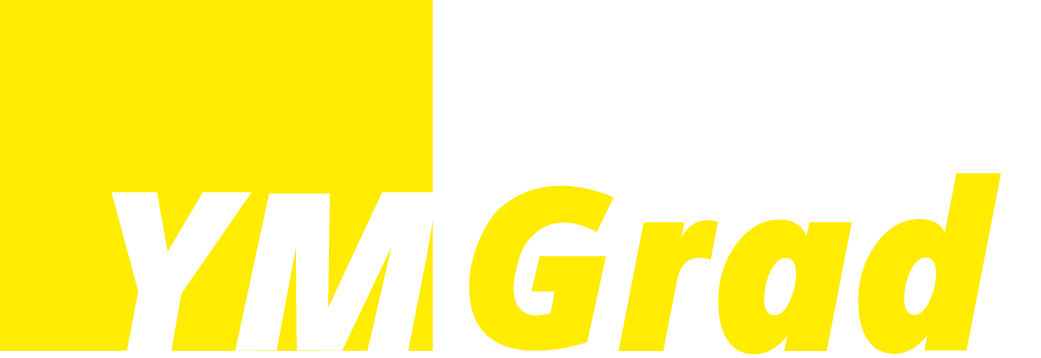Top Public Universities in Germany - Zero Tuition Fee (2025)


Have you ever considered studying at some of the world's top-ranked public universities with minimal to no tuition fees, along with scholarship opportunities? If so, Germany might be the most fitting destination for you.
Well-known for their prestige, some of the leading universities in Germany have proven to provide the best education and excellence in research across various scientific disciplines. Germany has established itself as a top choice for international students seeking world-class education at an affordable cost.
Be it considering a bachelor's or a master's program, Germany offers a wide range of opportunities to international students. In this blog, we will look into what these top-tier universities have to offer and what you need to know before applying.
- Best Public Universities in Germany
1. Technical University of Munich (TUM)
2. Ludwig-Maximilians-Universität München ( LMU)
3. Universität Heidelberg
4. Freie Universität Berlin
5. RWTH Aachen University
6. Karlsruhe Institute of Technology (KIT)
7. Humboldt Universität
8. Technische Universität Berlin (TU Berlin)
9. Universität Hamburg
- University Comparison Table
- Why Study in Germany?
- Conclusion
1. Technical University of Munich
Ranked #28 in the world QS Ranking, the Technical University of Munich (TUM) is a world-class institution renowned for its focus on engineering, technology, and natural sciences. With a focus on research and innovation, TUM attracts high-end education-seeking applicants globally.
Application Requirements:
Bachelor's Programs:
Master's Programs:
Language Proficiency:
Tuition Fee For International Students:
Want to go to Germany but not sure how to start the process?
Enroll with us today and get complete assistance with your application.
2. Ludwig-Maximilians-Universität München (LMU)
As one of Germany's oldest and most esteemed universities, LMU offers a wide range of programs in the humanities, sciences, and social sciences. Ranked #59 in the world, LMU is particularly well-known for its research capabilities and diverse academic offerings.
Application Requirements:
Bachelor's Programs:
Master's Programs:
Language Proficiency:
Tuition Fees:
3. Universität Heidelberg
Founded in 1386, Heidelberg University, ranked #84 in the world, is Germany's oldest university, known for its research-based approach and eminence in the humanities, natural sciences, and medicine.
Application Requirements:
Bachelor's Programs:
Master's Programs:
Tuition Fees:
Application Process:
Language proficiency:
4. Freie Universität Berlin
Established in 1948, Freie Universität Berlin ranks #97 in the QS Rankings 2025 and stands out for its interdisciplinary research and a strong emphasis on international collaboration.
Application Requirements:
Bachelor's Programs:
Master's Programs:
Tuition Fees:
Application Process:
Language proficiency:
5. RWTH Aachen University
Ranked #99, RWTH Aachen University is one of Germany's largest technical universities and is globally renowned for its engineering and technology programs.
Application Requirements:
Bachelor's Programs:
Master's Programs:
Tuition Fees:
Application Process:
6. Karlsruhe Institute of Technology (KIT)
Ranking #102 on QS, KIT is one of Germany's leading universities in science, technology, and engineering.
Application Requirements:
Bachelor's Programs:
Master's Programs:
Tuition Fees:
Entrance Exam:
Language proficiency:
7. Humboldt Universität
Humboldt Universität, ranked #126, is celebrated for its academic prominence in interdisciplinary research and cultural significance in arts, humanities, and sciences.
Application Requirements:
Bachelor's Programs:
Master's Programs:
Tuition Fees:
Language proficiency:
8. Technische Universität Berlin (TU Berlin)
TU Berlin is a leading technical university offering a wide range of engineering and technology courses. Ranked #147, it Is highly regarded for its focus on ingenuity and interdisciplinary studies.
Application Requirements:
Bachelor's Programs:
Master's Programs:
Tuition Fees:
Language proficiency:
9. Universität Hamburg
Known for its strengths in social sciences, law, and environmental studies, Universität Hamburg, ranking #191 in the QS Rankings, offers a rich academic and research environment.
Application Requirements:
Bachelor's Programs:
Master's Programs:
Tuition Fees:
Language proficiency:
University Comparison Table
Here is a brief overview to assess which university works best for you:
| University | Bachelor's Requirements | Master's Requirements | Language Proficiency | Tuition Fees | |
|---|---|---|---|---|---|
| TUM | Secondary diploma; Studienkellog | Relevant degree; GRE (some) | IELTS (6.5+), TestDaF, DSH | €2,000–€6,000/semester | |
| LMU | Abitur or equivalent; APS certificate | Relevant degree | IELTS (6.5+), TestDaF, DSH | Tuition-free; €100–€150 fees | |
| Heidelberg | Abitur or equivalent; Uni-Assist | Relevant degree | IELTS (6.5+), TestDaF (4+) | €1,500/semester (non-EU) | |
| Freie Universität | Abitur or equivalent | Relevant degree | IELTS (6.5+), TestDaF (4+) | Tuition-free; €300–€400 fees | |
| RWTH Aachen | Abitur or equivalent | Relevant degree | IELTS (6.5+), TestDaF (4+) | Tuition-free; €300 fees | |
| KIT | Abitur or equivalent; Studienkolleg | Relevant degree | IELTS (6.5+), DSH-2 | €1,500/semester | |
| Humboldt-Universität | Abitur or equivalent | Relevant degree | IELTS (6.5+), TestDaF (4x4) | Tuition-free; €300 fees | |
| TU Berlin | Abitur or equivalent | Relevant degree | IELTS (6.5+), B2 German | Tuition-free; €300 fees | |
| Universität Hamburg | Abitur or equivalent | Relevant degree | IELTS (6.5+), B2 German | Tuition-free; €300 fees |
Why Study in Germany?
The following are the perks of studying in Germany:
Renowned Academic Excellence
German universities are internationally recognized for their high academic standards, advanced research, and innovations in fields such as engineering, business, and sciences.
Practical Learning Opportunities
The emphasis on the pith of practical education and internships will be conducive for students to put to use the theoretical learnings in relevant fields.
Specialized programs
Germany offers various highly specialized programs that are designed per industrial needs, targeted for students to gain expertise in niche areas of the student's choice.
Cost-Efficiency
Oftentimes, public universities either have no tuition fees or come at a minimal cost, making Germany an alluring option.
Global Industry Connections
Germany is an abode for many multinational companies like Siemens, BMW, Bosch, and startups, providing multitudes of networking and employment opportunities upon graduation.
English-taught Programs
Many programs, especially at the Master's level, are taught in English, too, which makes it accessible to non-German-speaking students while encouraging them to learn a new language.
Strategic Location
With an ideal location at the heart of Europe, students in Germany get easy access to international business markets and the opportunity to travel to other European markets.
Post-Graduation Opportunities
Since the spring intake is less prevalent, there may be less competition for course placements, funding, and accommodation.
Conclusion
Get an initial counseling session to have your profile evaluated.
Frequently Asked Questions!

To study at top Universities in Germany, you are required to have good academics and English Proficiency.

Many public universities are available that provide free education to all students, but they teach in Germany, and proficiency in a foreign language is required to study over there. If you enroll in any private institution to learn English, the fees start from around 10,000 Euros.

If you want to study in a public university, then you need to learn the German language. If you enroll yourself in any English-taught university, then learning German is not compulsory.

Most universities require IELTS as it is a mandatory criterion for them. To study abroad in Germany, you need to hold a higher education entrance qualification or Hochschulzugangsberechtigung (HZB).

Options are also available for enrolment on the basis of MOI in private universities.

20 Hours of work is permissible while you are studying in Germany.

Germany is an Engineering Hub and top companies are available which recruit qualified engineers. So Engineering courses help to get the best job opportunities.

If you want to study in a world-renowned student city, you might consider Munich or Berlin, both ranked among the world’s top 10 cities for students in the QS Best Student Cities index.

Universities focus on theoretical and research-oriented education, ideal for academic careers and PhDs, while Fachhochschulen emphasizes practical learning, industry connections, and internships.

Yes. After completing your studies in Germany as an international student, you’re able to apply for a residence permit to stay in the country and seek work for an additional period of 18 months.






